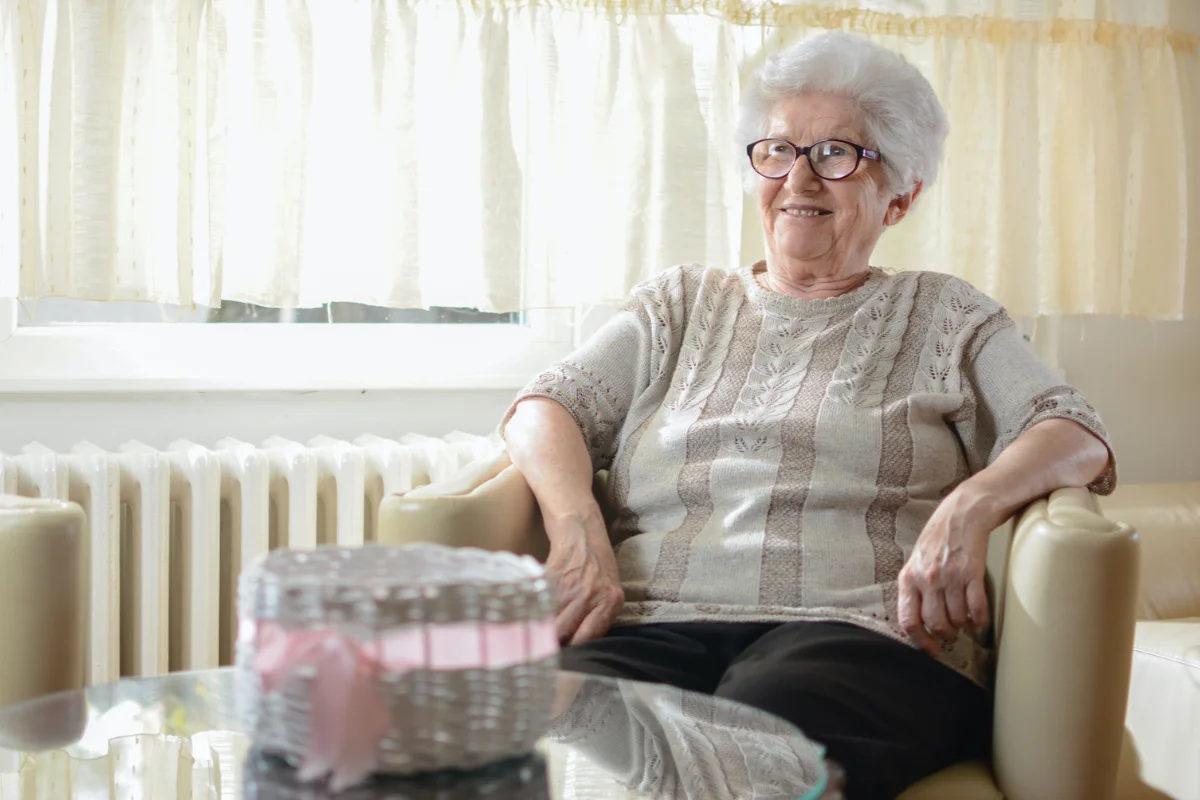Why Personalized Memory Care is Important for Alzheimer’s Patients
Wiki Article
Everything About Memory Treatment Providers: Why Little Memory Care Residences Are a Great Option
Memory treatment services play a crucial role in supporting people with Alzheimer's and mental deterioration. Little memory care homes stick out for their individualized approach and intimate setting. With lower staff-to-resident ratios, these homes promote stronger connections and tailored care. Locals take advantage of boosted social communications and a safe atmosphere. As family members explore options, comprehending the unique benefits of little memory care homes comes to be important. What variables should be thought about when choosing the ideal home?Comprehending Memory Treatment Provider
While several may be familiar with general elderly treatment options, recognizing memory care solutions is important for family members dealing with the obstacles of cognitive decline. Memory care specifically deals with individuals with conditions such as Alzheimer's condition and various other types of dementia. These solutions provide an organized atmosphere that concentrates on improving the lifestyle for homeowners through specialized treatment and support.Memory treatment centers are designed to guarantee security and security, typically featuring protected atmospheres to avoid wandering. Educated team member are offered all the time to assist with day-to-day activities, drug administration, and personal care. Furthermore, memory treatment programs commonly include cognitive stimulation activities, customized to engage homeowners and advertise psychological health. Households can gain from comprehending these solutions, as they allow notified choices concerning their loved ones' care, guaranteeing that their details demands and choices are attended to in a caring and helpful fashion.The Advantages of Tiny Memory Treatment Homes
Tiny memory treatment homes offer distinct benefits that can significantly boost the lifestyle for citizens with cognitive impairments. One considerable benefit is the intimate setting, which enables individualized interactions amongst team and homeowners. This smaller sized setting promotes significant partnerships, reducing feelings of seclusion and anxiousness typically experienced by people with memory issues.Additionally, the reduced staff-to-resident ratio in tiny memory treatment homes allows caregivers to supply even more mindful supervision and assistance. This method not just boosts security yet additionally advertises a complacency for the residents.Moreover, small memory care homes can adjust quickly to the special requirements and preferences of each resident, permitting a more homey atmosphere. Such a setting can urge social interaction and engagement in tasks, ultimately enhancing the day-to-day experiences of those living with cognitive problems.Personalized Care Program for Locals
Personalized treatment strategies are crucial in memory care homes, as they satisfy the unique requirements and choices of each resident. These plans begin with thorough evaluations performed by competent experts, who examine cognitive capabilities, case history, and individual passions. This customized approach assurances that care is not only efficient however likewise respectful of each person's self-respect and autonomy.Moreover, personalized treatment plans are flexible, permitting changes as homeowners' needs develop over time. This versatility fosters a complacency and experience, which is vital for individuals coping with memory challenges. Caregivers are trained to implement these plans consistently, offering support that straightens with the locals' regimens and preferences.Ultimately, personalized care strategies improve the lifestyle for citizens by promoting interaction, well-being, and self-reliance, making them a basic element of memory treatment services in tiny memory treatment homes.Creating a Home-Like Atmosphere
Creating a home-like setting is crucial for cultivating convenience and familiarity in memory care setups, as it greatly impacts citizens' emotional well-being. Tiny memory treatment homes frequently focus on customized touches, such as cozy color palettes, family pictures, and familiar furnishings plans, which assist homeowners really feel more at convenience. Integrating components similar to a traditional home, like comfortable space and common areas, motivates a feeling of belonging.Moreover, making use of all-natural light and outdoor spaces can enhance the environment, advertising relaxation and harmony. Employee play a significant role in preserving this setting by involving with citizens in a caring fashion, treating them like family members. Routine activities, such as cooking or gardening, can likewise add to a home-like feeling, supplying possibilities for homeowners to join meaningful experiences. On the whole, creating a nurturing environment supports cognitive function and psychological stability, making it an important facet of memory care solutions.
Enhanced Social Communication and Neighborhood
Improved social communication and area are vital elements of memory treatment services. By cultivating customized social interaction and creating a family-like environment, these services promote meaningful connections among homeowners. Group events and activities further encourage engagement, aiding individuals feel more included and sustained.Personalized Social Involvement
While social communication is crucial for total well-being, many individuals with memory impairments frequently have a hard time to engage meaningfully with others. Personalized social interaction in memory care homes addresses this obstacle by creating customized tasks that deal with residents' special rate of interests and capabilities. By focusing on specific choices, caregivers can cultivate links that resonate deeply with everyone. Activities such as art treatment, songs sessions, and led discussions promote cognitive stimulation and emotional expression. In addition, small team settings encourage camaraderie and enable more intimate communications, improving feelings of belonging. This method not only deals with feelings of isolation however likewise equips residents to keep a sense of identification, inevitably adding to boosted psychological wellness and lifestyle.Family-like Environment
In a memory treatment setting, promoting a family-like environment substantially improves social communication and develops a feeling of community among residents. Smaller sized memory treatment homes commonly focus on intimate atmospheres, permitting locals to create closer connections with each other and employee. This nurturing environment promotes count on, which is crucial for people with memory problems. Residents are much more likely to involve in conversations and share experiences, developing a supportive network that eases sensations of solitude. The knowledge of common areas and regimens adds to a feeling of belonging, additionally urging social interaction (personalized memory care). In such setups, psychological bonds flourish, leading to boosted overall wellness and a greater top quality of life for locals as they browse their everyday experiences with each otherTeam Activities and Occasions

Security and Security Functions in Tiny Homes
Lots of tiny homes created for memory treatment include crucial security and protection features to assure the wellness of locals. These homes frequently utilize safe entrance and leave points to avoid straying, a common problem among people with memory impairments. Additionally, security systems and alarm system mechanisms boost tracking, guaranteeing that staff can quickly reply to any kind of unusual activities.Interior formats are customized for safety, with minimized hazards such as sharp corners and clutter-free pathways. Handrails and non-slip flooring are generally set up to reduce the risk of drops. Personnel are learnt emergency protocols, ensuring they are planned for different situations.Moreover, personalized treatment plans might include evaluation of individual security demands, providing tailored services for each and every local. Overall, these safety and safety and security attributes develop a nurturing atmosphere where locals can grow while preserving their self-respect and independence.How to Pick the Right Memory Treatment Home
How can family members assure they choose one of the most ideal memory treatment home for their enjoyed ones? The decision calls for careful consideration of numerous elements. Initially, households must evaluate the facility's staff qualifications and training, making sure that caregivers are experienced in managing memory-related problems. Next, it's essential to analyze the home's atmosphere, concentrating on safety functions and whether it fosters a sense of area and belonging. Checking out the center can offer understanding right into daily tasks and the social ambience, which are necessary for mental excitement and emotional well-being. Additionally, family members should ask about the care plans supplied, ensuring they are tailored to private needs. Considering the home's location and ease of access for family visits can add to a smoother change. By resolving these facets, families can make an informed decision that prioritizes their loved one's convenience and lifestyle in a memory treatment setting.Regularly Asked Questions
What Qualifications Should Team Members in Memory Care Residences Have?
Personnel in memory care homes ought to have appropriate certifications, experience in dementia treatment, solid communication abilities, and empathy. Continuous training in behavior administration and healing interventions enhances their capacity to support citizens effectively.How Do Memory Care Solutions Differ From Standard Assisted Living?
Memory treatment services focus specifically on people with memory problems, supplying customized assistance and structured environments. In contrast, conventional assisted living uses general support with everyday activities, lacking the customized technique required for those with cognitive challenges.What Sorts of Activities Are Used in Memory Care Residences?
Memory treatment homes typically offer a selection of activities made to involve locals. Typical alternatives consist of art treatment, songs sessions, cognitive games, exercises, horticulture, and social occasions, all focused on improving wellness and cognitive feature.Can Citizens Bring Their Own Possessions to Memory Care Houses?
Citizens can generally bring their own possessions to memory treatment homes, enabling them to customize their home - personalized memory care. This technique helps develop an acquainted environment, promoting comfort and a sense of identity for the people
How Are Household Members Included in the Treatment Refine?
Household participants play a necessary duty in the treatment process, usually taking part small memory carehomes Charlotte in decision-making, attending treatment conferences, and offering emotional assistance. Their involvement cultivates a collective setting, improving the local's general wellness and high quality of life. While several might be acquainted with general elderly treatment options, recognizing memory care solutions is crucial for family members encountering the obstacles of cognitive decrease. These solutions give an organized setting that focuses on improving the high quality of life for homeowners through specialized care and support.Memory treatment facilities are developed to guarantee security and security, usually including safeguarded environments to stop wandering. Customized care strategies are essential in memory treatment homes, as they cater to the special needs and choices of each homeowner. Staff participants in memory care homes should have appropriate qualifications, experience in mental deterioration treatment, strong communication abilities, and compassion. Memory care services concentrate especially on people with memory impairments, giving specialized support and organized settings.Report this wiki page